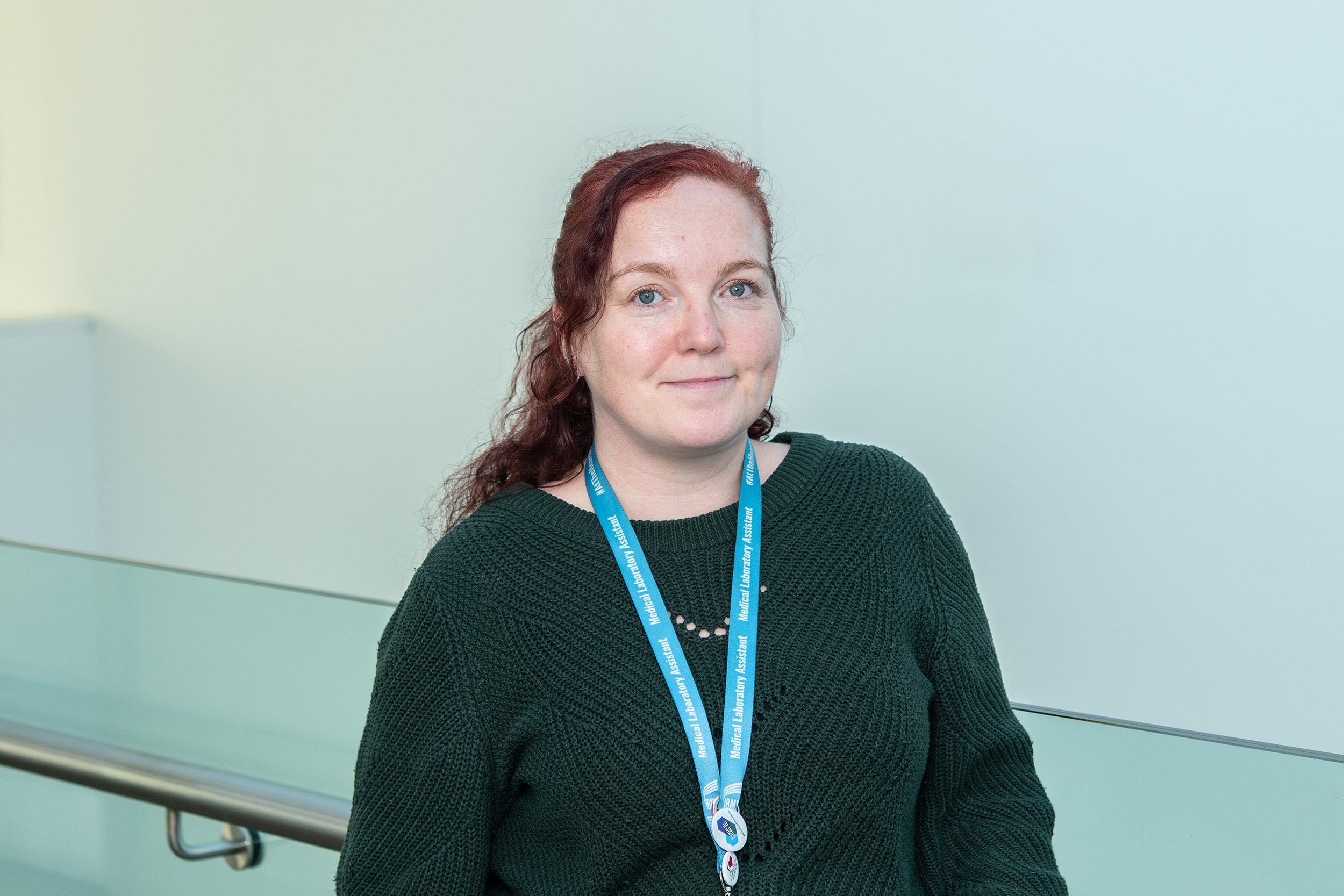Overcoming the challenges of a care-experienced background

Tammy Piper’s role as Tissue Bank Manager at the IGC came about both as a result of, and despite, her upbringing.
The oldest of three children growing up in a dysfunctional family in Great Yarmouth, Norfolk, as a teenager she took to running away as things reached a ‘cooker pressure’ situation at home, often staying with an aunt or a friend’s family.
At the age of 16, she managed to get a place in supported lodgings with a foster mum, who had previously run a Bed & Breakfast business before a downturn in the tourism industry.
“My mother had issues with alcohol. She had starting drinking when I was nine but it got worse. My dad worked very long hours and my mum was left in charge of us. Then my parents separated and he died quite suddenly.
“My siblings stayed with my mum but I didn’t feel safe there. I was hoping social workers would step in to help my younger brother and sister.”
Despite her chaotic upbringing, Tammy, 44, had inherited an interest in science from her dad, a radio engineer who worked offshore on the rigs.
“I took after him. I was always interested in science and logical things. He was the one who taught me to catch beetles, wire a plug. Coming from a seaside town, I liked the idea of studying marine science.”
Having found stability with her foster mum, where she was fed regular meals, had her own room and a group of foster siblings who bonded over their shared backgrounds, Tammy was able to focus on her A levels.
“One of challenges with STEM is it is so exact and fact based. You have to do a lot of studying and if your home life is chaotic, it can be difficult for you to get the grades you need to go into STEM.
“When I did my A level maths, you needed a scientific calculator. I couldn’t afford that so I had to spend my holidays working.”
She was one of only two from the group of seven teenagers she lodged with – during what she describes as a ‘golden age’ – who went to university, studying Marine Biology at Aberystwyth University in Wales. But even then, life wasn’t straightforward.
“I was eligible for tuition fees but had to apply for an exemption every year. You aren’t counted as estranged until you have lived away from your parents for three years and every year, I had to go through a lot of bureaucracy to get exempt from tuition fees.”
In addition, while others were able to spend their summer holidays gaining work experience in a lab or on overseas trips, Tammy had to work in a series of low-paid jobs to support herself.
“I had to work in the holidays because I didn’t have anywhere to live and was facing homelessness with every approaching holiday. When you come into the world of work, you have people who could afford to do voluntary work placements to get experience. I would have given up my holidays to do it but I also needed to work. That’s where that kind of background affects career opportunities. When you have done bar and care jobs and the other person has done work experience at an institute, that sets you apart from them. That’s another challenge in STEM.”
This led to a change in career direction for Tammy, when, in order to gain lab experience, she applied for a job as an assistant in a hospital pathology lab. When they suggested she train as a Biomedical Scientist, she did a Masters in Cellular Pathology at the University of the West of England Bristol and then trained in Cytology at the Royal Gwent Hospital in South Wales.
Soon afterwards, in 2006, she got a job at what is now the IGC where she manages the tissue bank, archiving tumour samples from patients in large phase III breast cancer clinical trials.
Her husband, who she met at Aberystwyth University, also got a job in Edinburgh and they now have two sons.
However, despite being one of the few from her foster family to get away from her home town and start a new life, Tammy has carried the burden of her early life into motherhood.
“When I was a child, we had one meal a day and we would have one pair of shoes and one coat. When you’re in a situation like that you don’t realise how abnormal your family is. It’s one of familiarity.
“I have two boys, aged 11 and five, and I worry if I’m feeding them enough. You don’t know when you come from that kind of background.”
It was only when her foster mum died last summer, and she and five of her foster siblings got together for the funeral, that she fully understood she came from a care-experienced background.
“When my foster mum died, I was quite devastated. At the funeral, I realised I had been in care. People understand the term foster mum but not supported lodgings. I realised then that she did run a foster home and we were in care.”
When she read about the University’s statutory duty to meet the needs of care-experienced and estranged students, she decided she wanted to support others who come from a similar background, and is now a mentor for care-experienced students.
She also gets involved in public engagement activities to encourage children from deprived backgrounds to consider a career in STEM, recently attending an Edinburgh Science Career Hive event at the National Museum of Scotland.
“A significant number of children go into care in Scotland and only a small per centage go to university. There are now a lot of things in place to support children who want to go into HE.”



